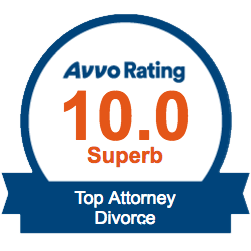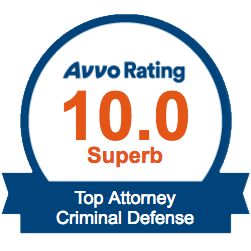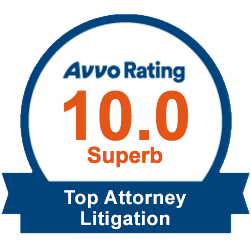- CRIMINAL DEFENSE
- criminal expungement
- Kidnapping
- Harassment
- Criminal mischief
- Petit larceny
- Menacing
- Reckless Endangerment
- Female genital mutilation
- First Arraignment
- Possession of a Weapon
- Grand Larceny
- Sex Offender Registration Violations
- Internet Sex Crimes & Attempted Sexual Assault
- Sexual Assault of a Child
- Possession of Child Pornography
- Child Indecency & Child Molestation Crimes
- Aggravated Sexual Assault
- Statutory Rape
- Sex Crimes
- Human Trafficking
- Rape
- Forcible Touching
- DIVORCE AND FAMILY LAW
- Surrogacy
- Divorce Mediation
- Parental Alienation
- Divorce Appeal
- Women’s Rights Attorney
- Men’s Rights Attorney
- Marital Property Division
- Marital Agreements
- Domestic Violence
- Separation Agreements
- High Net Worth Divorce
- Equitable Distribution
- Order Of Protection & Restraining Orders
- Paternity Fraud
- Same Sex Divorces
- Child custody
- Contested Divorce
- Father’s Custody Rights
- WHITE COLLAR CRIMES
- PPP Fraud
- Career opportunity scams
- Healthcare Fraud
- Investment Fraud
- Extortion
- Enterprise Corruption
- Bribery Crimes
- Blackmail
- Antitrust
- Medicaid Fraud
- Mortgage Fraud
- Medicare Fraud
- Financial Transaction Structural Offense
- Money Laundering
- Marriage Fraud
- Economic Crimes
- Insurance Fraud
- RICO
- Public Corruption
- Business Fraud Charges
- Embezzlement
- CYBER CRIMES
- VIOLENT CRIMES
- APPEALS
- DWI & DUI CHARGES
- DRUG CHARGES
- OFAC SDN LIST REMOVAL
- GOVERNMENT INVESTIGATION
- BITCOIN AND CRYPTOCURRENCY
- CIVIL LITIGATION
- LIQUOR LICENSE
- FORECLOSURE DEFENSE
- LOAN ASSISTANCE
- DEBT COLLECTION
- COVID-19 COMPASSIONATE RELEASE
- GUN LICENSE
- CANNABIS LICENSE
PHISHING SCAM ATTORNEY
ACCUSED OF PHISHING SCAM?
What are phishing scams? Typically, they are fraudulent email messages that seem to come from genuine sources (e.g., your bank, your Internet provider, your alma mater). The usual intent of these messages is to lead you to a website that is set as a trap or encourage you to reveal some specific personal information (e.g., a birth date, password, or account information). If the phishing scam is successful, the perpetrator uses this information to commit identity theft.
Phishing scams are simple tools used to induce fear into the recipient and cause a panic that leads to the divulging of information. These are the trademarks of this type of crime as true responsible corporations and companies would not take such a course of action via email related to any personal sensitive subject matter.
There are many kinds of phishing scams two of the most common are called spearfishing and whaling. An expert phishing scam attorney should be able to know how these crimes apply to the law whether there is an indirect law or one that addresses the matter specifically.
Spear phishing is designed to be specific attacks aimed at a particular individual, company, or role. The preparation for an attack using this method involves the gathering of specific personal information to increase the probability of a successful phishing scam. Whaling is a phishing scam that targets high-level executives in an organization be it government, business, or social.
CALL YOUR NEW YORK PHISHING SCAM ATTORNEY
The penalties for this type of crime vary and are based on the circumstances that surround the crime itself. Penalties can be fines, jail time, or probation depending on a person’s criminal history and the elements involved in the crime itself. A year to five years in prison is possible if convicted of a felony charge and up to a year if convicted of a misdemeanor. Misdemeanor fines can be up to $2,000, while felony fines can be up to $10,000 or more per offense.
The legality of phishing scams is directly addressed on a state level by some states but not by all. All states do have laws against obtaining someone else’s identity or personal information illegally.
Phishing scams do fall under some kind of law in all states even if it is not addressed directly in the Penal Code. A phishing scam attorney will be of much help in understanding what crime has been committed if no such direct law applies to a person’s circumstance.
While the state judicial level addresses phishing scams directly in some instances, there is not one federal statute that directly outlaws this kind of action. There are other laws that do encompass phishing scams and other crimes of identity theft. Wire fraud is a common use of federal law to prosecute phishing scam perpetrators. Consult a phishing scam attorney if you are not sure about the laws pertaining to such a crime.
WHAT DO YOU KNOW ABOUT PHISHING?
Phishing scam can be committed using various technological resources:
♦ Email Phishing:
It is most likely the most known kind of phishing. In such cases frauds contact their victim throughout an email, which looks like a message from a company familiar to a victim. Fraudulent emails usually content links to suspicious fraudulent webpages. There is usually a request to enter a PIN, credit card number, or any other private data. The main weapons of scam frauds are threatening and immediacy of the request, which makes a victim act in a rush sharing private information they rather keep in secret in other situation. Then this information is purchased to obtain person’s money or property, or to get a bank credit on her or him. Such methods are usual because it’s not too complicated to copy the well-known logo of a company.
♦ Website Phishing:
This type of phishing scams bases on making fabricated websites which usually look like true website of this company. Another way is hacking real websites and re-directing a victim to the fake fraudulent website, or using specific “pop-up” links for same purposes. Potential victim may download a spyware or give their personal data believing that website is real.
♦ Phone Phishing:
These types of phishing scams are also known as “smishing” and “vishing”. They are made using telephone, by calling or SMS. Such messages usually contain a fake link or phone number. After using them a victim may be asked of to uncover his or her personal data. Sometimes it can take a form of ordinary telemarketing with so-called cold-calls to potential victim asking him or her to enter some personal information which can be used than to get access to person’s property or money.
NYC PHISHING SCAM DEFENSE
Phishing scamming (or, as it is called sometimes “fraudulent misrepresentation”) is quite severe criminal offense that is usually lead to criminal prosecution and trial proceedings. But first of all, there is a necessity to locate and find the offender who created and spread the fraudulent mail. The seasoned criminal defense lawyer will know well if it is possible in this situation to find out exactly who is responsible for that and if it is possible to find out the first source. Your New York phishing scam attorney can also advise you about all the elements of the crime, including money loss enough for starting the criminal case and future details of the proceedings.
Contact the attorneys at the Sharova Law Firm they can help you in defending your case and protecting your rights. We are good enough both in theory, so we will explain you all the circumstances of your unique case and all necessary future steps, and in practice, so we are ready to be your legal representants during the whole criminal process. The knowledge of all ins and outs of the New York court system makes us great litigators and lets us fight for your freedom effectively. The phishing scam attorneys at the Sharova Law Firm are top quality legal professionals who care about their clients. Contact them today!














